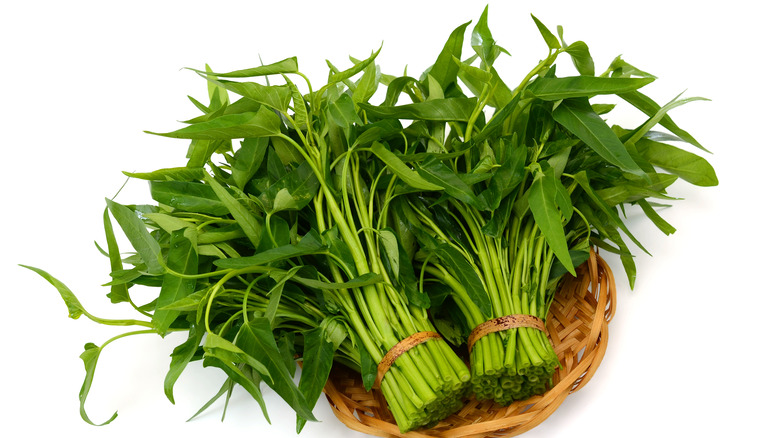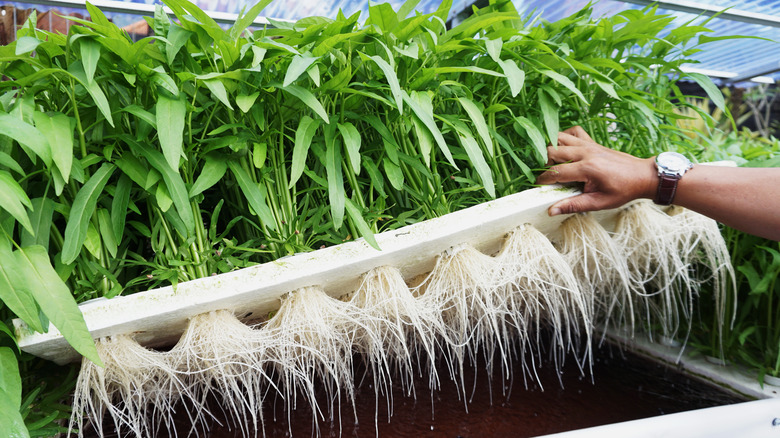The Spinach You Never Knew Was Illegal In The South
Used in dishes and cultures across the world, water spinach, also known as ong choy or kōng xīn cài, is a widely-used leafy green that originated during the Chin Dynasty around A.D. 300 (per USDA). The hollow plant grows in water or moist soils and doubles as an abundant resource due to it being entirely edible (via Worldcrops). While it originates in China, it has also been cultivated in India, Malaysia, Africa, Brazil, the Caribbean, and Central America (per The Takeout). And despite sharing a name with the common vegetable we use in things like creamed spinach recipes, the Asian crop is not actually related to spinach at all.
An iron-rich plant, water spinach is a healthy and cheap addition to stir fries and Asian soups like pho. But despite being healthy, resourceful, and affordable, you won't be seeing this ingredient on menus in southern parts of the United States due to its harmful impact on non-native freshwater environments.
Water spinach is considered an invasive species
Although it doesn't disturb West Coast climates, water spinach is still considered a weed across the U.S. According to Florida's Fish and Wildlife Conservation Commission, a single water spinach plant can branch profusely, with stems growing to over 70 feet long. This fast growth rate, approximately 4 inches per day, represents a significant threat to flood control and native plant habitats. Not only is it a versatile ingredient, water spinach is also a versatile pest that can infest lakes, ponds, rivers, and shorelines. The plant is heavily regulated across the country and is fully outlawed from being grown in uncontrolled environments in states like Texas, Florida, Georgia, and Arizona.
Although water spinach is heavily regulated to preserve aquatic life, some states are easing up on their regulations. According to NPR, Georgia officials have agreed to import the crop — a sign of the growing influence Asian Americans have in the state. In Florida, cultivators are welcome to grow water spinach in greenhouses as long as the plant is packaged on-site to avoid its seeds from spreading into protected bodies of water. The good news for fans of Asian vegetables is that there are plenty of delicious, non-invasive alternatives to water spinach like Nappa cabbage, bok choy, and pea shoots.

